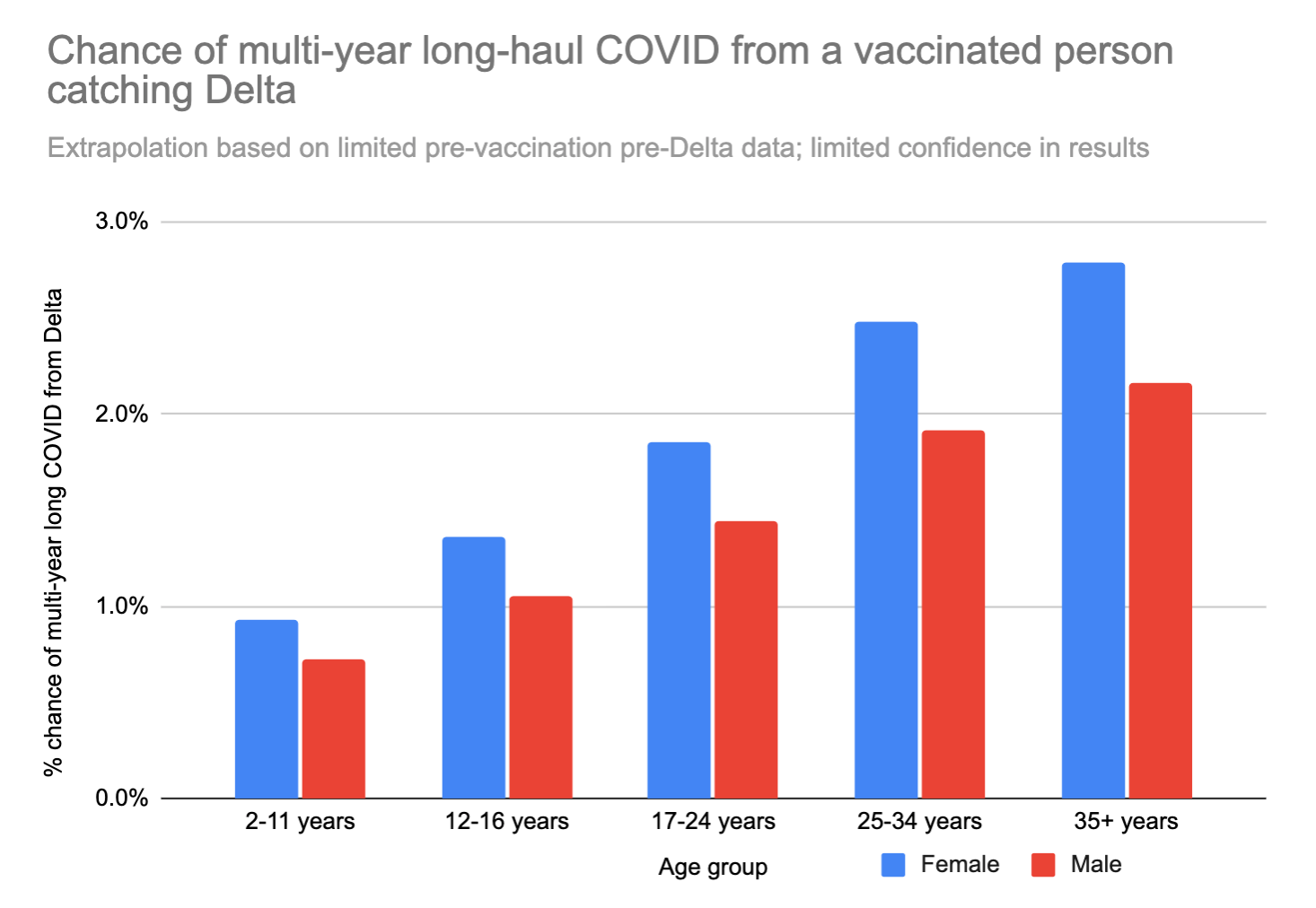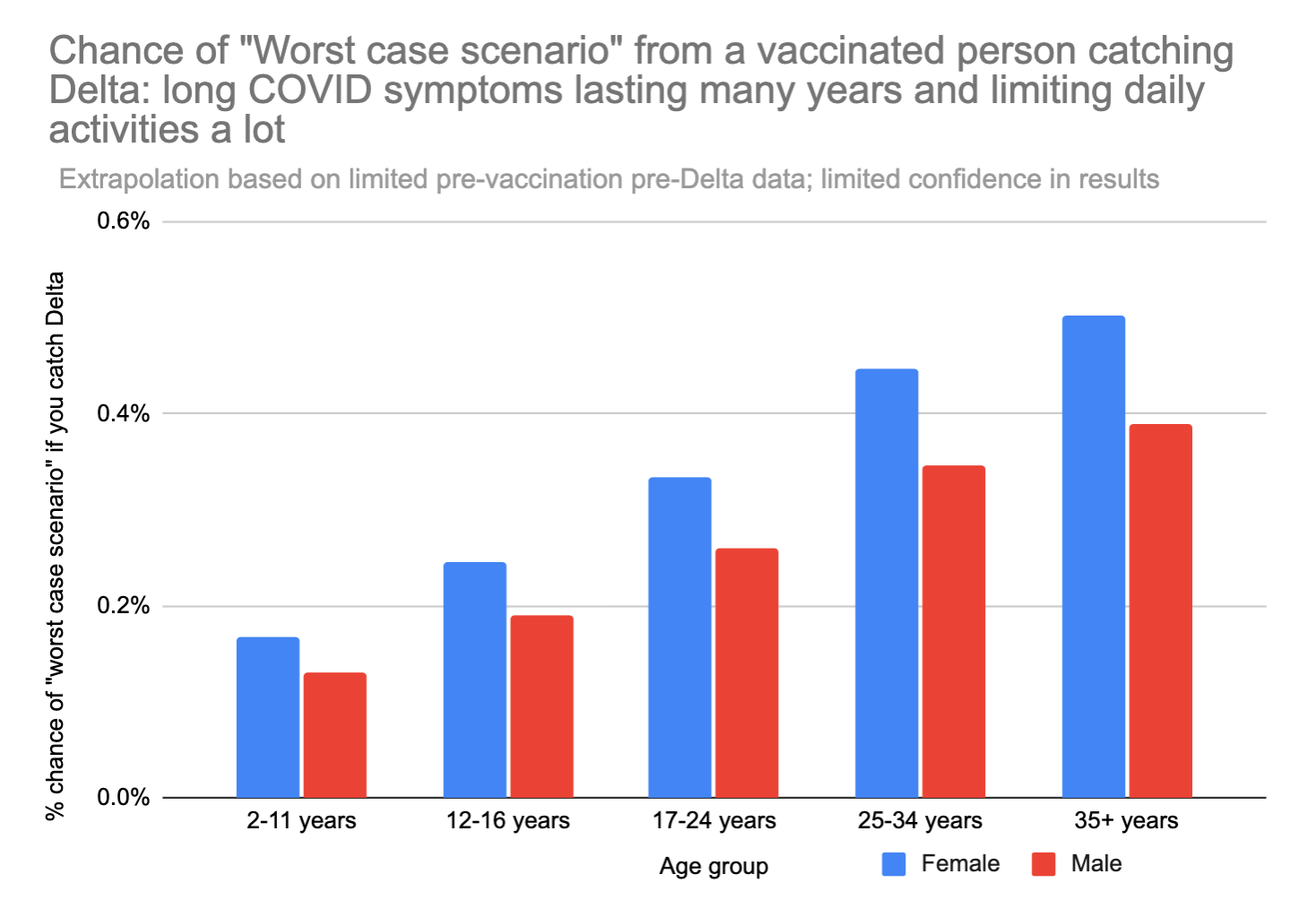A short summary would be nice.
Speaking for myself, the important part of the "we" worrying about COVID are my unvaccinated kids. Without them, I would probably be like "COVID is mostly over, avoid spending too much time indoors with too many people, but otherwise it's mostly okay". With kids, it's more like "let's wait a few more months".
A lot of them have their own summaries if you open the links, but I would recommend focusing on the "Overall how bad it is to catch COVID" links + playing around yourself with https://www.microcovid.org. I've added quotes of the estimates from "Overall how bad it is to catch COVID" to the post. These two figures from https://www.mattbell.us/delta-and-long-covid/ (with estimates derived in the article) seem relevant:


The author wrote:
Based on all the above evidence, I’m making a very rough guess that mRNA vaccination cuts the risk of a Delta COVID infection developing into long COVID in half, independent of vaccination’s reduction of the risk of catching Delta at all.
So, for unvaccinated people, you would double the risks in these figures. Note also that the risks here are higher than in the other 2 links in "Overall how bad it is to catch COVID".
[Cross-posted to the EA Forum. Consider checking comments there, too.]
I've decided to collect research on the risks of COVID, especially among vaccinated people and for long COVID. Please share more in the comments, and it would be helpful to categorize them according to the section headings of this post. Other discussion about the evidence and research is also welcome in the comments.
I've included quotes of estimates for the three links in the section "Overall how bad it is to catch COVID".
I'm not committing to updating the post with more links beyond the ones I've already included (although I might); I encourage readers to check the comments instead.
EDIT: Check the COVID-19 tag on LessWrong.
Overall how bad it is to catch COVID
I've come across three estimates for the number of expected quality of life adjusted days lost to (long) COVID for fully vaccinated people. I think the main reasons for the discrepancies between the first and second are higher risks of long COVID conditional on COVID and higher risks of long COVID becoming basically permanent conditional on long COVID in the first link. Some potential symptoms like fatigue and brain fog would reduce your productivity.
1. https://www.mattbell.us/delta-and-long-covid/
For fully vaccinated people catching Delta:
Also, see these two figures (derived in the article) for risks of multi-year long COVID or worst case multi-year long COVID by age and gender among vaccinated people, and the rest of the key takeaways at the start of the article.
2. https://www.lesswrong.com/posts/9xd5ArGud8897q5on/delta-strain-fact-dump-and-some-policy-takeaways?commentId=rGZiHcuzt7bh7sXmL
For fully vaccinated people:
3. https://www.lesswrong.com/posts/9xd5ArGud8897q5on/delta-strain-fact-dump-and-some-policy-takeaways
Also see the discussion in the comments.
Research summaries and papers
I give more weight to lower estimated risks, because I expect that larger estimated risks are probably more biased upwards due to inadequate matching/controlling/adjusting for confounders or unrepresentative samples, since I don't think the confounders they're matching/controlling/adjusting for are likely to introduce downward bias.
Managing your COVID budget